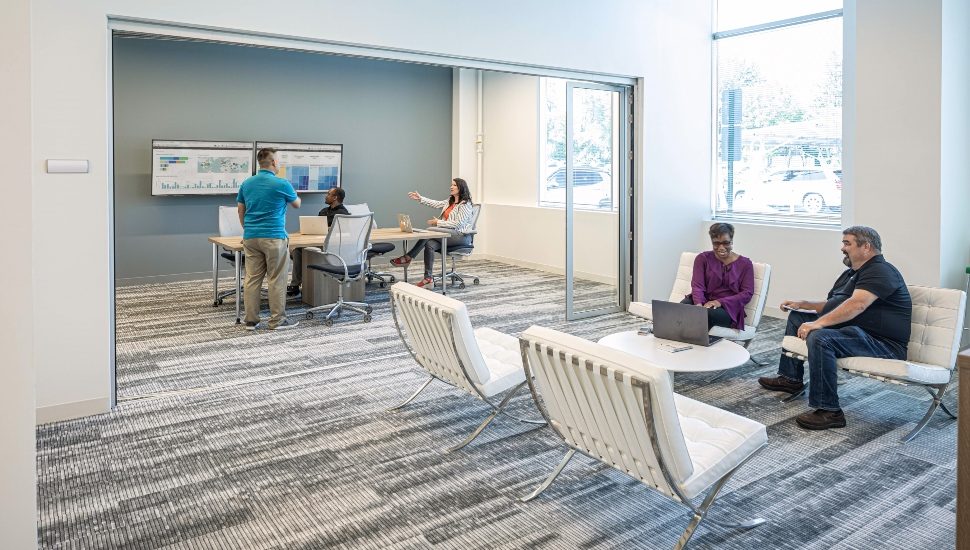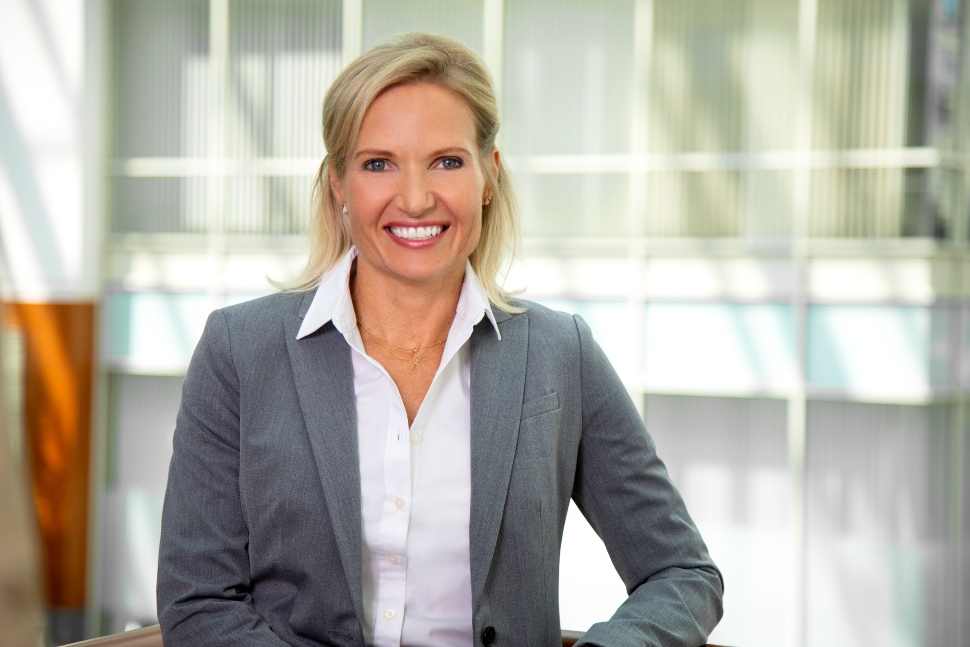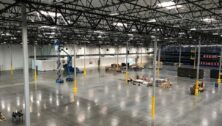King of Prussia’s Qlik Leverages Data to Make the World a Better Place


Creating a culture of diversity, equity, and inclusion, along with a focus on sustainability, is important for any business, especially one with a global footprint. That is why Qlik, a data analytics company based in King of Prussia, formed a department that strives to integrate social equity, economic vitality, and environmental health in its business model.
As Qlik’s Vice President of Sustainability and Diversity, Equity, and Inclusion, Julie Kae brings a collaborative focus on the inclusion and well-being of 2,400 employees worldwide, and on environmental programs to combat climate change. All these efforts come from a technology company that is championing the value of data literacy.
“We want to create a data-literate world, which means delivering an end-to-end solution for organizations to leverage data to make better decisions,” said Kae. “We also provide services around our technology to help organizations and their employees better understand how to use data. You can deliver all the great software you want, but unless employees actually understand how data empowers them to make decisions, it’s just a fancy set of graphs.”
The focus on Diversity, Equity, and Inclusion (DE&I) began years ago as a grassroots effort at the company. Kae has been with Qlik for 13 years but did not assume management of the coordinated program until this year.
“We wanted to create a culture in order to attract and keep the very best talent, and also to form a diverse workforce to foster creativity and innovation,” she said. “If you get in a room full of people who look and sound and say all the same things all of the time, you’re not going to create or innovate the very best products in any company.”

Although there were several DE&I initiatives already in place at the company, the George Floyd case emphasized the importance of a renewed commitment.
“We kind of hit the gas pedal after the George Floyd murder last summer,” she said. “When that event happened, companies woke up and realized they had an opportunity not just on paper to check a few boxes, but to actually drive better practices within their own organizations to support their employees and their ability to thrive and create better companies, as well as influence the outside world.”
Kae realizes that fostering Diversity, Equity, and Inclusion within her company is a journey and that real change takes time. Her aim is to make all employees feel they are valued, which is no small task when 70 percent of Qlik employees work in other countries.
“When I first assumed all the DE&I work, our employees outside the U.S. didn’t think it was a program for them,” she said. “For them, it was ‘a U.S. thing.’ But this is something we have to think about globally.”
A key component of Qlik’s diversity program consists of Employee Resource Groups, such as the Black Alliance, Women in Tech, Latinos Unidos, and an LGBTQ+ group. According to Kae, about 10 percent of all employees are members of at least one resource group, whether they are part of that particular community or just supportive of the cause.
“We have many activities across the company that focus on bringing resources together for these groups, including bringing speakers to the entire organization and hosting celebration months,” said Kae.
The Black Alliance ERG is special to Kae, who is the group’s executive sponsor. With two biological children and an adopted son from Ethiopia, she has been managing a multi-racial family for 15 years.
“This group I take very personally since I’ve been dealing with these issues in my own home and family life,” she said. “I’m very proud that Qlik was supportive when we launched the group last summer.”
Beyond diversity efforts, Qlik looks into its own practices to determine if it is doing the right things to truly support people in their job growth. For Qlik, data plays a significant part in understanding the equity piece of the puzzle.
“We have 11 executive departmental leaders who have each identified ambassadors, who drive our initiatives forward and look at our data,” said Kae. “What does our gender scorecard look like? How many people are hired and promoted at each level? How many have left, and why do they leave? And are we hiring enough young people for the viewpoints and experiences of a younger generation?”
With employees scattered among nearly 30 countries, the company’s focus on inclusion, or making people feel valued and included, is critical. Overall, the DE&I focus at Qlik is about creating the best culture, where people can feel they can bring their full selves and talents to work.
“We want their talents and their uniqueness to be celebrated in a way that they can thrive and contribute to help the organization be the very best that it can be,” said Kae.
Kae and her office, however, believe their efforts are not just to create the best culture for Qlik employees, but also to use their technology and resources to focus on sustainability issues and societal changes. As Executive Director of Qlik.org, Kae helps lead the company’s ongoing commitment to leverage its software, culture, and people to transform data into meaningful action across the globe.
Activities through the Qlik.org platform include leading Qlik’s environmental, social, and governance programs; managing strategic partnerships with international organizations, such as the United Nations, the C40 Cities Climate Leadership Group, and Direct Relief; and leading the development of environmental solutions, as well as data-driven applications for global nonprofits.
“We support about 400 nonprofits with donated Qlik software,” said Kae. “We are also working with organizations like WHO, UN-Habitat, and UNFCCC on climate change, where we help them with data and analytics with our software, so they can make progress in completing their missions. They can’t do that without data, and whatever we do in these cases always has the goal of how to leverage data for good, how people can make better decisions, all powered by Qlik software.”
Kae and her colleagues are mindful of taking advantage of the opportunities they have to leverage the power of data and software to help make the world a better place.
“Very few companies have the opportunity to leverage the type of product they make and support causes with their products,” she said. “But we want to be inspiring for other companies to also do more. It’s not that we want to beat our own drum. We want to share this information because we think all companies can drive change in a similar way that Qlik can.”
Connect With Your Community
Subscribe for stories that matter!
"*" indicates required fields





























